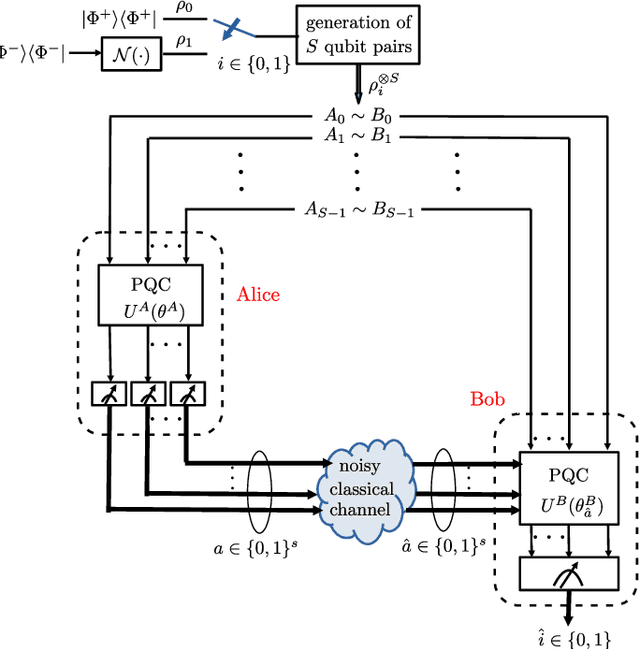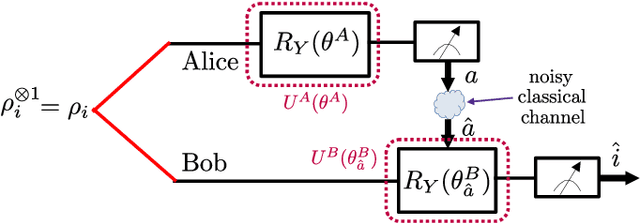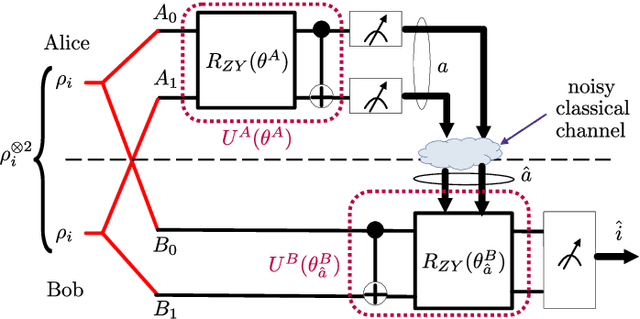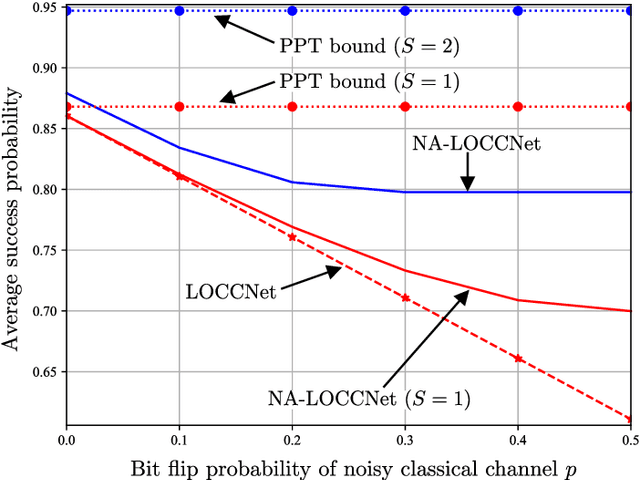Hari Hara Suthan Chittoor
QuLTSF: Long-Term Time Series Forecasting with Quantum Machine Learning
Dec 18, 2024



Abstract:Long-term time series forecasting (LTSF) involves predicting a large number of future values of a time series based on the past values and is an essential task in a wide range of domains including weather forecasting, stock market analysis, disease outbreak prediction. Over the decades LTSF algorithms have transitioned from statistical models to deep learning models like transformer models. Despite the complex architecture of transformer based LTSF models `Are Transformers Effective for Time Series Forecasting? (Zeng et al., 2023)' showed that simple linear models can outperform the state-of-the-art transformer based LTSF models. Recently, quantum machine learning (QML) is evolving as a domain to enhance the capabilities of classical machine learning models. In this paper we initiate the application of QML to LTSF problems by proposing QuLTSF, a simple hybrid QML model for multivariate LTSF. Through extensive experiments on a widely used weather dataset we show the advantages of QuLTSF over the state-of-the-art classical linear models, in terms of reduced mean squared error and mean absolute error.
Online Convex Optimization of Programmable Quantum Computers to Simulate Time-Varying Quantum Channels
Dec 09, 2022



Abstract:Simulating quantum channels is a fundamental primitive in quantum computing, since quantum channels define general (trace-preserving) quantum operations. An arbitrary quantum channel cannot be exactly simulated using a finite-dimensional programmable quantum processor, making it important to develop optimal approximate simulation techniques. In this paper, we study the challenging setting in which the channel to be simulated varies adversarially with time. We propose the use of matrix exponentiated gradient descent (MEGD), an online convex optimization method, and analytically show that it achieves a sublinear regret in time. Through experiments, we validate the main results for time-varying dephasing channels using a programmable generalized teleportation processor.
Learning Distributed Quantum State Discrimination with Noisy Classical Communications
Jul 22, 2022



Abstract:Consider a distributed quantum sensing system in which Alice and Bob are tasked with detecting the state of a quantum system that is observed partly at Alice and partly at Bob via local operations and classical communication (LOCC). Prior work introduced LOCCNet, a distributed protocol that optimizes the local operations via parameterized quantum circuits (PQCs) at Alice and Bob. This paper presents Noise Aware-LOCCNet (NA-LOCCNet) for distributed quantum state discrimination in the presence of noisy classical communication. We propose specific ansatzes for the case of two observed qubit pairs, and we describe a noise-aware training design criterion. Through experiments, we observe that quantum, entanglement-breaking, noise on the observed quantum system can be useful in improving the detection capacity of the system when classical communication is noisy.
Learning Quantum Entanglement Distillation with Noisy Classical Communications
May 17, 2022



Abstract:Quantum networking relies on the management and exploitation of entanglement. Practical sources of entangled qubits are imperfect, producing mixed quantum state with reduced fidelity with respect to ideal Bell pairs. Therefore, an important primitive for quantum networking is entanglement distillation, whose goal is to enhance the fidelity of entangled qubits through local operations and classical communication (LOCC). Existing distillation protocols assume the availability of ideal, noiseless, communication channels. In this paper, we study the case in which communication takes place over noisy binary symmetric channels. We propose to implement local processing through parameterized quantum circuits (PQCs) that are optimized to maximize the average fidelity, while accounting for communication errors. The introduced approach, Noise Aware-LOCCNet (NA-LOCCNet), is shown to have significant advantages over existing protocols designed for noiseless communications.
Coded Consensus Monte Carlo: Robust One-Shot Distributed Bayesian Learning with Stragglers
Dec 17, 2021



Abstract:This letter studies distributed Bayesian learning in a setting encompassing a central server and multiple workers by focusing on the problem of mitigating the impact of stragglers. The standard one-shot, or embarrassingly parallel, Bayesian learning protocol known as consensus Monte Carlo (CMC) is generalized by proposing two straggler-resilient solutions based on grouping and coding. The proposed methods, referred to as Group-based CMC (G-CMC) and Coded CMC (C-CMC), leverage redundant computing at the workers in order to enable the estimation of global posterior samples at the server based on partial outputs from the workers. Simulation results show that C-CMC may outperform G-GCMC for a small number of workers, while G-CMC is generally preferable for a larger number of workers.
 Add to Chrome
Add to Chrome Add to Firefox
Add to Firefox Add to Edge
Add to Edge